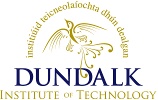McAleer, Patricia (2025) The role of nurse-led telephone triage in supporting older adults with multimorbidity to engage in digital self-management. Doctoral thesis, Dundalk Institute of Technology.
|
PDF
- Accepted Version
Download (3MB) |
Abstract
In the European Union (EU), an estimated 50 million individuals live with multimorbidity — defined as the co-occurrence of two or more chronic conditions — a prevalence that increases with age and imposes significant and growing pressure on health care systems. As populations age, health care services must evolve to meet the complex, long-term needs of older adults living with multiple conditions. Effective strategies to support older adults in self-managing their conditions are essential, and digital health technologies (DHTs) are increasingly recognised as a promising means to achieve this. DHTs can enable people to monitor their symptoms, adhere to treatments, and engage more actively in managing their own well- being. However, while these technologies offer significant potential by making health care more accessible, proactive and personalised, many older people with multimorbidity (PwMs) face barriers to sustained engagement such as low digital literacy, heightened anxiety around illness or technology use, and limited confidence in interpreting health data. In this context, human support, particularly through nurse-led telephone triage services, is emerging as a complementary approach to enhance engagement with DHTs. Through a multiphase mixed methods study, this thesis aims to examine the role of Telephone Triage Nurses (TTNs) in supporting PwMs to engage in regular and sustained self-management of their health and well-being from home using DHTs. Study 1 employed a qualitative design to explore the experience of stakeholders involved in the SMILE project. Ten older PwMs, who had been using the ProACT digital health platform to self-manage their conditions for approximately eight to 10 months, participated in semi- structured interviews to share their experiences of using the platform and interacting with the TTNs. Additionally, a focus group was held with three TTNs who provided remote clinical monitoring and support, and one-on-one interviews were conducted with a general practitioner (GP) and a practice nurse (PN). Study 2 expanded on these insights through a two-part mixed methods investigation, nested within the SEURO project. Part 1 involved the analysis of objective engagement data from 64 older PwMs who had used the ProACT platform for a 6-month period, allowing for a comparison between those who had access to TTN support (n=32) and those who did not (n=32). Part 2 complemented this analysis, by analysing engagement data and conducting semi-structured interviews with a sub-sample of 24 PwMs from the same cohort, providing qualitative insight into engagement patterns, motivations, and perceived value of the TTN service. This mixed methods approach enabled a comprehensive understanding of both the measurable outcomes of engagement and the personal, contextual factors that shaped it. xix Findings from Study 1 indicated that the perception of being monitored encouraged participants to remain engaged in their self-management routines, with TTNs providing reassurance and a sense of safety. TTNs in turn highlighted the value of having longitudinal health and well-being data to inform more timely and accurate assessments and more targeted clinical responses. Despite the remote nature of the service, both PwMs and TTNs described their interactions as supportive and relational, with emotional support emerging as a key feature of the service. Study 2 further reinforced the importance of human support, with quantitative data demonstrating higher levels of engagement among those with TTN support compared to those without such support. Qualitative insights elaborated that TTN involvement helped PwMs make sense of data, provided reassurance, increased motivation and helped address health concerns, thereby contributing to more sustained use of the platform. These findings have important implications for the integration of DHTs in health care delivery for older PwMs. While DHTs alone can provide tools for tracking and managing chronic conditions, their success depends on being embedded in supportive care pathways. TTN support not only facilitates sustained engagement with DHTs but also enhances self- management capacity and reduces health care burden. To harness this potential, further research is needed to optimise models of DHT integration with remote clinical support, with particular attention to how such support can be scaled and tailored to meet the diverse needs of older PwMs.
| Item Type: | Thesis (Doctoral) |
|---|---|
| Subjects: | Social Sciences > Older people |
| Research Centres: | UNSPECIFIED |
| Depositing User: | Julie Doyle |
| Date Deposited: | 08 Sep 2025 07:31 |
| Last Modified: | 08 Sep 2025 07:31 |
| URI: | https://eprints.dkit.ie/id/eprint/940 |
Actions (login required)
 |
View Item |
Downloads
Downloads per month over past year

